The journey from “The Wind Man of India” to becoming “The Father of Indian Renewable Energy”
THE WIND MAN
THE STORY
SIGNIFICANT CONTRIBUTION
INTERNATIONAL AWARDS
CONTRIBUTION TO THE FIELD
CONTRIBUTION TO SOCIETY
RECOGNITIONS
VIDEO GALLERY
The journey from “The Wind Man of India” to becoming “The Father of Indian Renewable Energy”
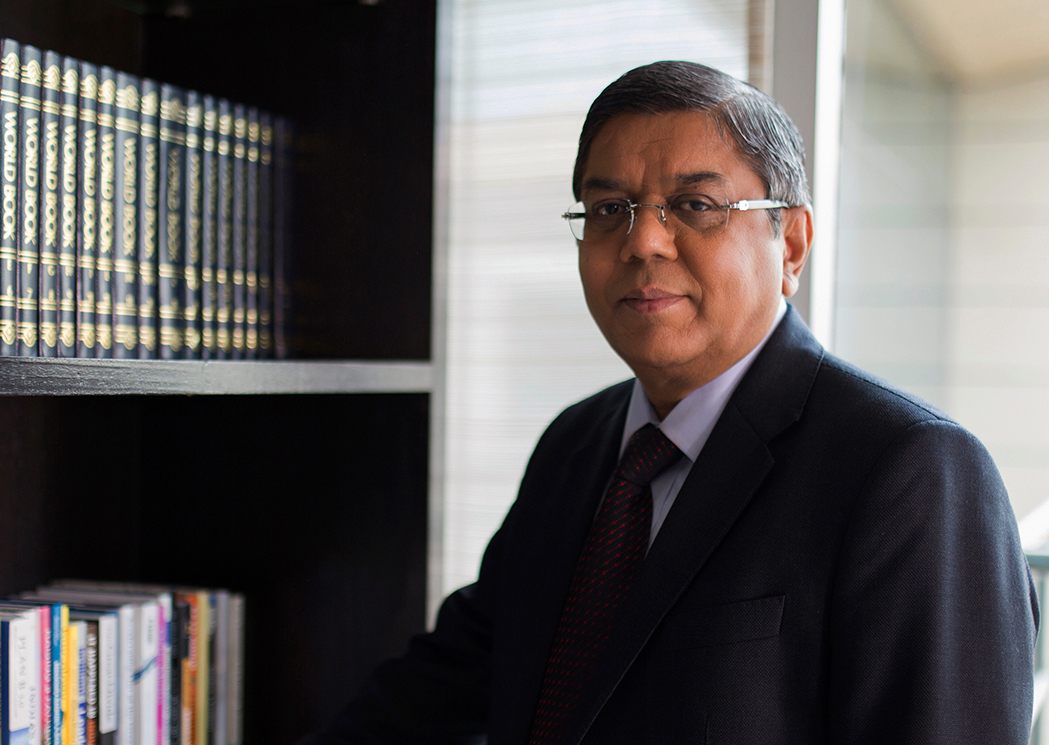
It was not too long ago when Shri Tulsi Tanti was passionately making the case for climate change and championing renewable energy to governments and policy makers all over the world. It seemed like an unending battle and at times it got frustratingly difficult to make the world see what was obviously happening all around. But he was tireless, fighting each day, winning small battles, and taking giant leaps towards creating a more sustainable future for the world. Today, the world has validated his relentless efforts and concerns as it recognizes ‘Climate Emergency’ as the No. 1 crisis facing humanity and Renewable Energy as the only viable weapon to combat it. Countries across the globe have set out ambitious net zero goals, ambitious renewables targets and a robust energy transition roadmap. India is right at the centre of the world’s energy transition plans.
Highly encouraged he wrote in his Economic Times editorial, “Suddenly the future that all of us in the renewable energy sector strived for, a green future, is HERE. This decade belongs to Renewable Energy. I am convinced that renewable energy will be key in stimulating global economies post the pandemic and create long term sustainable jobs.This future is what we have been working and fighting for. A future that will give our next generations the world that they deserve.”
The one man who played a pivotal role in creating this future and single-handedly putting India on the world renewables and energy transition map is undoubtedly – Shri Tulsi Tanti. He is also the pioneer of Indian Renewables and has played a fundamental role in India’s green energy and energy transition story.
Lovingly, known as the “Wind Man” of India, in the early 2000s, Shri Tulsi Tanti was a pioneer and visionary in the field of renewable energy. Mr. Tanti’s story is the story of Indian resilience, enterprise, entrepreneurial spirit, and global ambition. Since the founding of Suzlon energy in 1995, Mr. Tanti has been the driving force behind India’s largest wind energy company and the only renewable energy player from a developing nation to rank among the top five worldwide. Shri Tulsi Tanti was widely recognized the world over as a champion of climate change and an expert in renewable energy.
THE STORY
The story of Suzlon’s origin is inextricably tied to the Tanti family and the ability of Shri Tulsi Tanti to identify and leverage hidden opportunities while remaining passionate about the greater good of his country and countrymen. Suzlon was formed out of the textile manufacturing company that Mr. Tanti and his brothers ran in the 1980s in Gujarat. Shri Tulsi Tanti saw that the business suffered from high power costs and irregular supply and recognized the opportunity for wind power to help his business rely less on the grid while saving costs. Mr. Tanti acquired technology from Europe and convinced one of his own vendors to be his first client. The company set up a 0.27 MW plant for the customer within a short three-month deadline, which continued to operate at 97% efficiency even a decade later.
Suzlon was founded on the fundamental principle of “Make in India”. At a time when the wind power market was dominated by international players and expensive technology, Shri Tulsi Tanti’s vision was of an Aatmanirbhar value chain that provided an end-to-end solution for wind power customers – from R&D and manufacturing to operations and maintenance. His connections and goodwill in the industry, as well as his passion for the cause of green energy enabled him to convince fellow business owners to transition to wind power, as he had done for his textile business years ago. Even as Suzlon expanded to 17 countries across six continents, with R&D centres in Germany, the Netherlands, Denmark, and India that employ hundreds of engineers, Mr. Tanti maintained a humble lifestyle, committed to the cause of mitigating climate change and passionate as ever about wind energy. “I just want to do what I can to fix the problem,” was his humble submission.
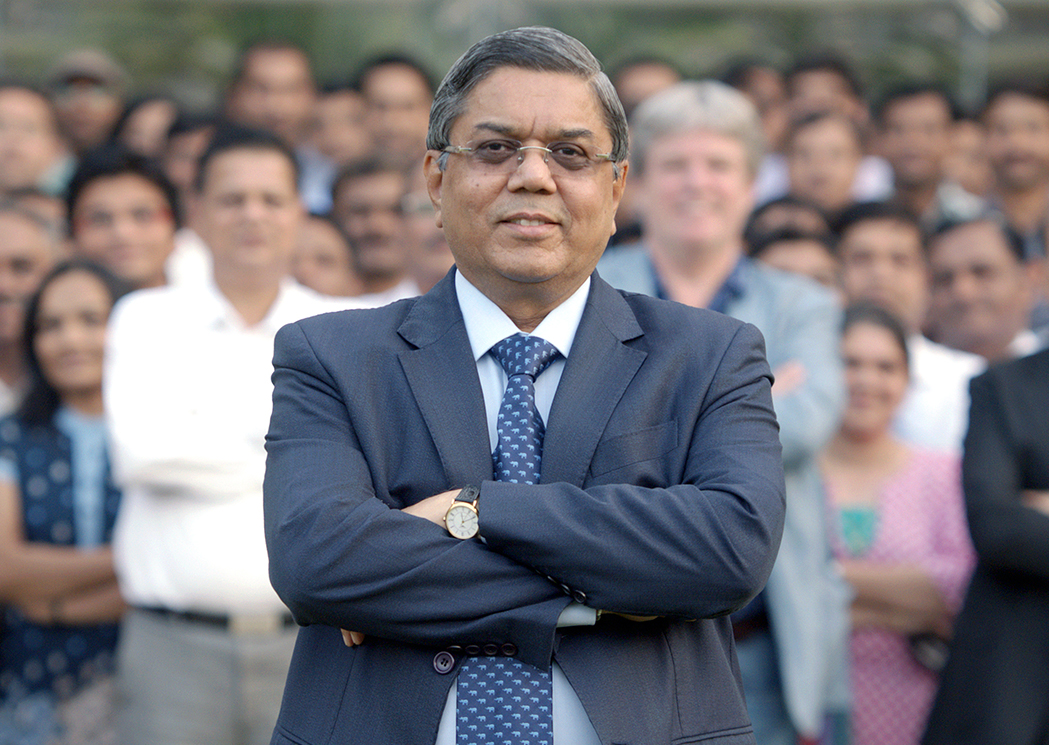
Often asked about his choice of wind energy at a time when it was unheard of in India, he would say, “The real purpose of business is to solve a social problem that can benefit countries and economies at large. To do that, if you must fight a hard battle, so be it. For meaningful business, creating wealth is an outcome of creating sustainable change for society.”
Shri Tulsi Tanti was grappling with multiple concerns at the same time. He could see the immense potential that India and its industry held, but he was aware of the limitations of infrastructure and power. He wanted to see India grow exponentially but was cognizant of the price that our environment would end up paying. He wanted to create a nation of opportunities and prosperity for our children, but he realized that India was especially vulnerable to climate change. He wanted to ensure progress with sustainability and growth with responsibility.
Another big driver for him was to make India self-reliant in manufacturing but even more so in energy security. He was pained to see India spend billions of dollars on oil imports which were escalating exponentially every year. As he would often say, “We are burning crucial cash on oil imports which could have gone into nation building. The only way to ensure a safe and happy future for our children while ensuring growth is to adopt renewables. Not just will it create energy security but will also help the environment which is critical for our survival.”
It was with this conviction that he took it upon himself to go about creating a country that he believed our future generations deserved. He found his natural allies in the Gujarat and Central Governments.
A firm believer in “Vasudhaiva Kutumbakam”, he said, “India has an ancient culture of respecting nature and all its elements. We treated everything on this planet as one big family. We worshipped natural elements as gods and goddesses. Today, we need to go back to the same philosophy of respect for the planet that our ancestors had. Along with that we need to leverage modern technology of renewables. If we can blend and balance the two, India will become a shining example for the world to follow.”
SIGNIFICANT CONTRIBUTION
Having a small footprint of a couple of European wind turbine makers in India, Indian Wind Energy stood at a miniscule cumulative installation of only 42 MW in 1992. At the time, wind energy was the only source of renewable energy in India. After Shri Tulsi Tanti set up Suzlon in 1995, he single-handedly took on the task of developing and growing of the sector. Having realized that the real growth and benefit of wind energy could only be leveraged if the Indian private sector got involved, he pioneered the first ever end-to-end business model in India. He successfully converted marquee Indian conglomerates like Bajaj, Tata and many PSUs into happy repeat customers. In just five years, by 2000 wind energy installations went up to 1,155 MW a 2310% jump with Suzlon leading the charts. By 2010, India had cumulative wind energy installations of over 13 GW and Suzlon alone had created an export market of nearly 6 GW. Today, Indian Wind Energy stands at nearly 43 GW of wind energy and Suzlon holds 33% of this share.
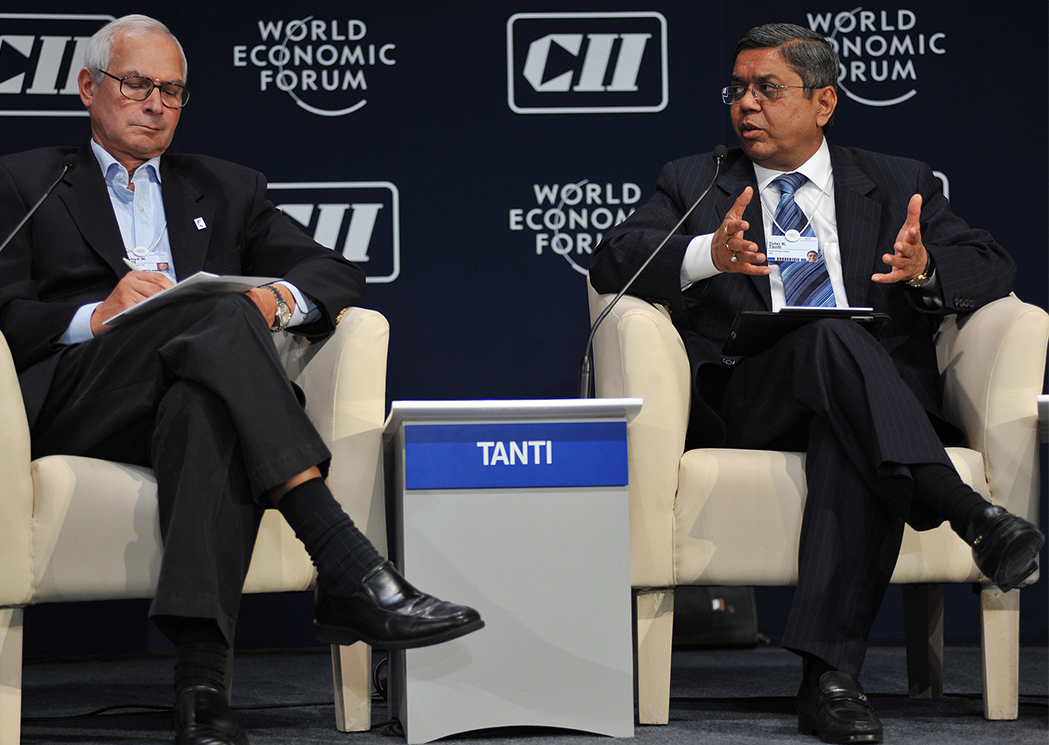
Over the last 28 years Suzlon and Shri Tulsi Tanti have become synonymous with Wind and Renewable Energy. Suzlon is today a true Indian MNC taking on the world and serving more than 1,900 marquee customers installing over 20 GW of Wind Energy worldwide. Powering the world with renewable energy, Suzlon’s wind energy Installations are equivalent to:
At a time when the term Aatmanirbhar Bharat was not yet coined, Shri Tulsi Tanti was a firm believer in the inherent engineering and manufacturing capability of India. He took the world by surprise when he introduced wind turbines manufactured in India during the 2000s to developed countries of the world which were considered technology leaders in the sector.
Not only did he successfully take Indian wind turbines global, but he also installed nearly 6 GW of this Indian equipment across 17 countries on six continents, making it one of the largest exports of technology and finished capital goods from India to the developed markets within that timeframe. He ensured that India was firmly entrenched in the global wind energy markets and India was recognised and respected for its wind energy manufacturing and technology.
Over the years, the business as well as the intellectual world has taken note of Suzlon’s journey and strategies. The stellar rise of a wind energy company from a developing world country fascinated both the academicians and well as policy makers alike. Studying Suzlon throughout its lifecycle, many leading global universities have published research papers and case studies on Suzlon and Shri Tulsi Tanti’s remarkable achievements.
The two most noteworthy case studies are the:
Shri Tulsi Tanti and his flagship company Suzlon Energy Ltd, continues to teach lessons in resilience, innovation, and entrepreneurship to the world at large.
Celebrated the world over
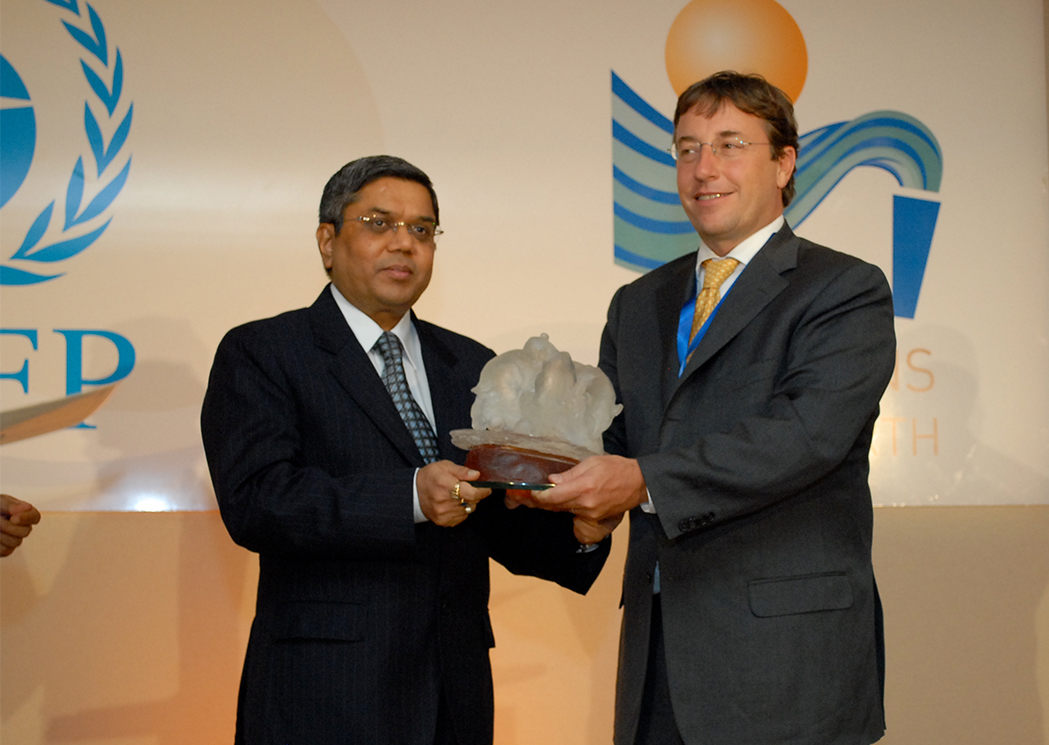
Deeply passionate about the creating a better world for our future generations and combating climate change, Shri Tulsi Tanti has been widely recognised worldwide for his contributions and achievements.
He was the first Indian to be conferred one of the world’s most prestigious accolades - ‘Champion of the Earth’ for working for the environment by the United Nations in 2009.
He was awarded multiple accolades, honoured time and again and featured by global media for his pioneering work in renewables. Some of them are:
Striving to promote India and the sector
Shri Tulsi Tanti has spearheaded the cause of renewable energy in various international forums and has been the face of India’s green energy revolution for the decades since Suzlon’s founding. He has been a strong voice on global leadership forums such as the Annual Meeting of the World Economic Forum (WEF), Clinton Global Initiative (CGI), Clean Energy Ministerial (CEM), Conference of Parties (COP) and Wall Street Journal “ECO:nomics”.
Tulsi Tanti also served on numerous governmental, inter-governmental, industry and policy alliance forums across the world to shape the future of renewable energy. One such committee was, the Committee of Energy Shapers, a dedicated group of highly influential individuals that are focused on improving the global energy framework under the leadership of Klaus Schwab, renowned economist, founder and executive chairman of the World Economic Forum.
Shri Tulsi Tanti has also been an active contributor to policy issues around green energy use. Considered the Captain of the Indian and global renewable energy industry, Shri Tulsi Tanti had served on various forums in differing capacities, including:
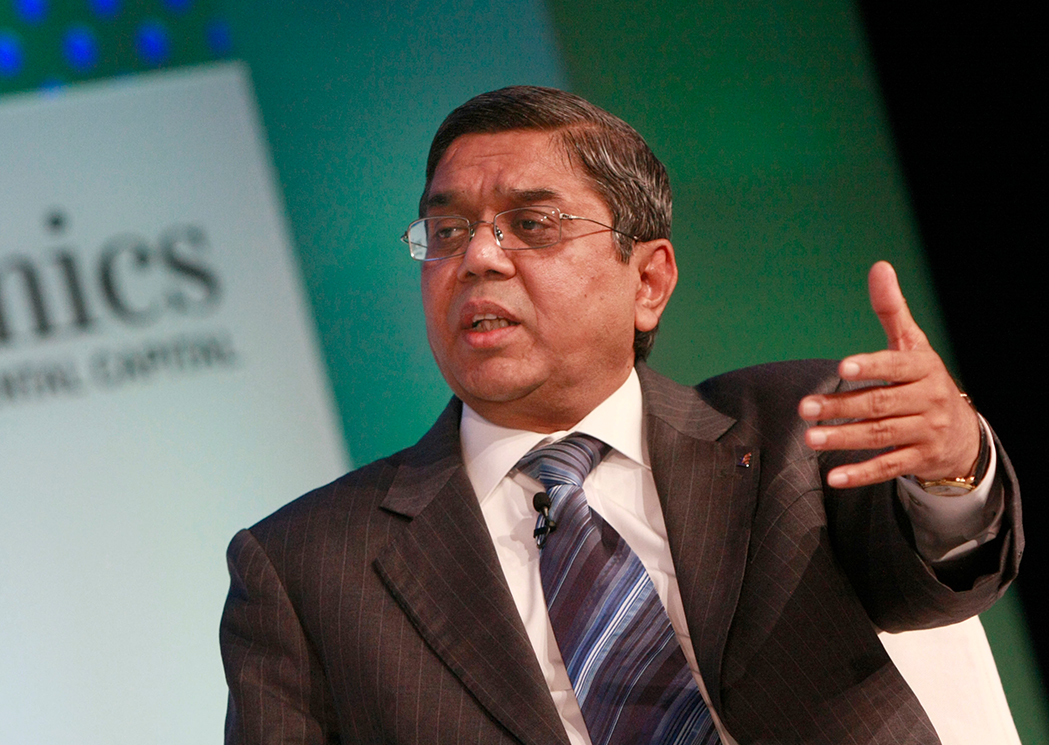
In the last few years, Shri Tulsi Tanti has been instrumental in heralding the green energy revolution in the country working closely with the Ministry of Renewable and New Energy and the Government of India. He brought all stakeholders of the industry together on a unified platform working relentlessly to align industry goals to national goals. He was deeply committed to our Prime Minister’s ‘Panchamrit’ commitments at COP26 and the vision of ‘Aatmanirbhar Bharat’. He dreamt of a better, stronger and sustainable India for our future generations.
A commitment towards sustainable social, economic and ecological development for creating a better world
Shri Tulsi Tanti always said that “if there is a strong connect of serving the community while conducting business it can truly be worth dedicating a lifetime to.” And that is exactly what he did.
True enough he ensured that Suzlon wind turbines stand as sentinels of a pollution free environment and that its true profits should be the gains of the planet, for this generation and that which can be bequeathed to the next generation.
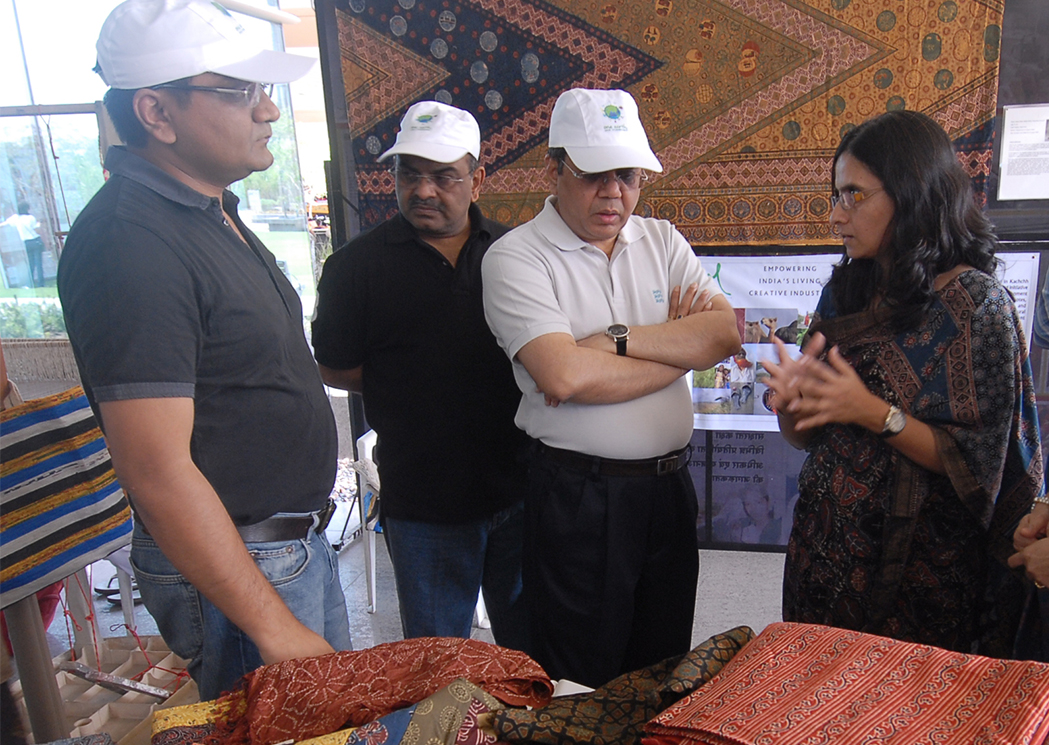
He was conscious of energy conservation and felt secure and at peace to be housed in his platinum LEED certified green corporate headquarters and pushed teams to create green buildings down to the last mile of grassroots level business offices.
He had a strong belief that business and its environment are interdependent, and his focus was on strengthening the organic link between them through responsible business and corporate social responsibility ethos of the company. He ensured that the Corporate Social Responsibility efforts were an integral part of business and not philanthropy. With extraordinary insight, he was able to steer CSR with a village-based business model-the popular Suztain model as we know it.
This model empowers the village development committee to address their own needs in future through structured phases. He was keen on sustainable CSR practices and constantly encouraged the team to do so. He made it a point to meet the teams annually to listen to grassroots level stories of change, applaud, inspire and share his insights with them. He often said that unlike other products in show rooms, our wind turbines are in the villages 24x7 and hence the community is our most important stakeholder. The implementing NGO partners often applauded the empowering approach used by Suzlon CSR as very systematic, sensitive and respectful to stakeholder needs and is a testimony to Shri Tulsi Tanti’s compassionate side.
With his strategic vision Suzlon Foundation reached out and impacted over 800 very remote underserved rural Indian villages catering to improved livelihoods among 183,308 families and facilitated initiatives that brought sight to over 9,200 cataract patients. We conserved over 46,479,000 cubic meters of water in drought ridden areas, provided health care to lakhs of patients, lighted up innumerable homes and empowered thousands of especially abled with dignity and mobility. The foundation planted more than 1,832,000 trees while empowering over 550 village development committees (VDCs).
For Tulsi Tanti business was not separate from working for the society. He kept community at the centre of his business and created models around it to ensure inclusive and sustainable development.
Shri Tulsi Tanti’s loss is a national loss. The renewable energy industry has lost a passionate captain and India has lost one of her most enterprising and committed sons. Indian Renewable Energy would not have been the same if it was not for the courageous and inspiring life of Shri Tulsi Tanti. His life will be a lesson for many future entrepreneurs and patriots going forward.
RECOGNITIONS
Video GALLERY
© Suzlon Energy Limited 2025
Webmail | Disclaimer | Privacy Policy | Terms of Use | GSTN & Statutory Details | Contact Us